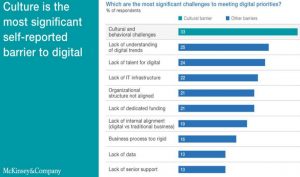Today, one can observe that airlines around the globe are testing and rolling out new technology including chatbots, machine learning, artificial intelligence, biometrics, and fingerprint scanning among others to ease check-in flows, boarding processes and in-flight experience in order to improve passenger travel experience while optimizing revenues and containing costs.
Chatbot technology powered by Artificial Intelligence are expected to drastically change the industry and are planned to deliver more personalized passenger experiences which will help to improve user"™ travel experience while at the same time assist airline to reduce cost and optimize revenues. It is believed that between 75 to 85% of passenger"™ frequently asked questions through airline"™ call centers or social media channels are the same. Therefore, using chatbots to respond to basic passenger questions makes the most senses as financially speaking it is a one-time investment. Furthermore and if properly set up and manage, cost savings can be anticipated. Several airlines including Lufthansa, KLM, Volaris and Aeromexico are moving forward with chatbot technology and many airlines are testing other applications such as Facebook Messenger, Whatsapp and WeChat to further improve customer"™ experience while helping airlines to reduce costs.
In addition, it is expected that chatbots in the future will help customers to buy tickets among other commercial initiatives. Therefore, it is expected that many travel agent functions will be transferred to chatbots furthering reducing airlines distribution costs.
Nowadays, one can observe plenty of discussions about digital innovation and transformation in the airline business as well as on the airport side. At best one could say there are airlines adopting the technology or soon to adopt it but that is not enough if airlines want to benefit to the fullest. In order to succeed, what airlines should be thinking of is in building a truly digital mindset organization. Therefore, how one can get started in this digital journey? First, airlines need to map out passenger touchpoints from origin to destination and ascertain what must and should be digitalized to improve the entire travel experience while keeping in mind how costs can be contained, and revenues optimized.
That is a good starting point. Second, an internal IT infrastructure review should be executed in terms of system strengths and limitations. Is the IT infrastructure scalable? How about our internal digital expertise in terms of manpower, capabilities and skills? Third, what digital technology is available, what are future digital trends? What technology can be employed to improve customer service, reduce cost and beef up commercial operations? Fourth, do you want to control all the digital value chain in-house or work with many digital contractors while you ramp up the team capabilities? Or should you completely outsource the digital journey? The answer is not an easy one but certainly a strategic one. Starting small and ramping-up seems to be a better business model for many in order not to spread limited resources too thin and lost track. If this approach is a preferred one, then it would be better to prioritize key digital projects and then perhaps at a later stage start thinking in controlling the entire digital process. Fifth, what financial resources and type of empowerment from the very top "“ an airline CEO and the Board "“ do you have to kick off and push forward the new digital strategy? This is probably the most important point of all. If you don"™t have the right support, you most probably in a best-case scenario partially execute a digital strategy.
Sixth and final, organizational culture. A recent study conducted by McKinsey & Company shows that a company culture is the most significant barrier to execute a digital strategy followed by lack of understanding of digital trends, digital talent and IT infrastructure. As we all know, most airlines have been in business for a long time, they are large corporations with complex hierarchical structures and therefore something their culture prevents innovation including digital one.
To conclude and to successfully execute and implement a sound digital strategy, airlines should focus on: Improving passenger end-to-end travel experience, increasing productivity both in the air and on the ground, optimizing revenues and increasing revenues per passenger, executing new merchandising and commercial opportunities, containing costs including lowering sales channel cost and lastly, providing better and timely information to employees.
With those and top management support, airlines are in a better position to execute and implement a sound digital strategy.
René Armas Maes is an International Consultant and manages a number of global consulting projects with key focus on commercial growth, cost reduction, strategy, risk mitigation and process streamlining.




